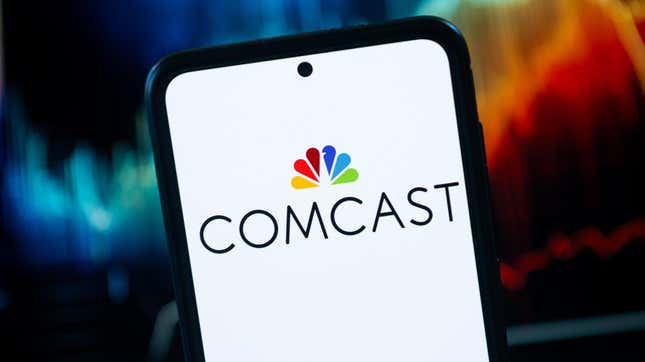
The next phase of the streaming wars—the one we all saw coming from a mile away—is officially here. In the current entertainment epoch, streaming companies are realizing the obvious truth that their business model is untenable and are now scrambling to reinvent traditional television. First, it was the return of ad-supported programming, specifically antithetical to the original promise of streaming. Lately, it’s been bringing back cable. Yes, we’re in the Bundling Era, and Comcast is getting in on the game.
On Tuesday, Comcast CEO Brian Roberts announced plans for “StreamSaver,” a new bundle that includes Netflix, Apple TV+, and Peacock. (As you are likely aware, Comcast owns NBCUniversal, which owns Peacock.) Speaking at the MoffettNathanson Media, Internet & Communications Conference (via The Hollywood Reporter), Roberts said, “Those three products will come at a vastly reduced price to anything in the market today and will be available to all our customers.” He added, “We’ve been bundling video successfully and creatively for 60 years. And so this is the latest iteration of that and I think will be a pretty compelling package.”
This comes shortly after the news that Disney+, Hulu, and Max would soon be bundled together in a new “affordable” package. Obviously, this will be enticing to some consumers who are currently paying more and more every year for a bunch of individual services. But we can’t help but see this as a further degradation of the television landscape.
Much like Uber for cars or Amazon for books (and then everything else), streaming succeeded by making big promises and undercutting competition, all but killing the original business model only to resuscitate it in ways that are more expensive and less accessible. Now customers will get trapped in tricky bundle subscriptions that are essentially mimicking cable, but unregulated. And all it serves is to give us fewer options and fewer choices as the biggest companies consolidate power. This is especially evident in the cast of Comcast, which is already almost entirely vertically integrated as a cable company and an entertainment studio and a streaming service. Yet there are no checks being placed on any of these growing monopolies.
To make matters worse, these methods aren’t making television any better. There are fewer TV shows now, and the ones we have tend to favor the streaming model: shorter episode orders, longer waits between seasons. It’s a drag from a consumer standpoint (data about what we’re all streaming suggests audiences enjoy longer seasons in the classic model, like Suits and Grey’s Anatomy), and it’s lethal from a labor standpoint. In the wake of the recent Hollywood strikes, screenwriters say it’s harder than ever to get a job. Classic 22-episode broadcast seasons used to keep hundreds of artists employed in stable, recurring gigs—now many of those jobs have dried up. It’s bad for the workers, it’s bad for the audience, it’s basically just good only for a handful of really wealthy executives who are incapable of valuing art over business. Is there a ceiling to what the streaming model can ruin? Or is it going to be like this, getting worse forever?